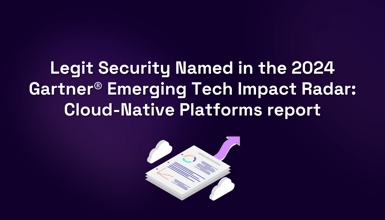Showing all posts by Legit Security


Cybersecurity Regulation Compliance
ASPM Definitions and Explanations
Application Vulnerabilities
Application Security Best Practices
What Is the Vulnerability Management Lifecycle? 6 Stages
August 22, 2022
Master the vulnerability management lifecycle to defend against cyber threats. Discover its stages, benefits, challenges, and how Legit Security can help.
Read MoreRequest a Demo
Request a demo including the option to analyze your own software supply chain.
